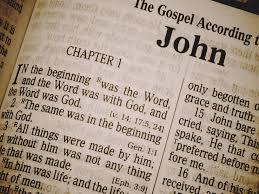FULL ASSURANCE OF FAITH

Rev. Bill Young
March 3, 2022

Scripture for the day: Hebrews 10:22-23 Let’s approach God with a sincere heart in full assurance of faith, having our hearts sprinkled clean from an evil conscience and our bodies washed with pure water. Let’s hold firmly to the confession of our hope without wavering, for He who promised is faithful.
Thought for the day: I love the author of this letter to the Hebrews. He has spent ten chapters of this book outlining in a logical manner, the standing we have in the Lord and what Jesus did to provide that standing. We looked at all the ‘because’ statements yesterday. Now, because he’s given these examples, the author invites his readers to “approach God with a sincere heart in full assurance of faith.”
I can see him sitting at his desk, quill in hand, pondering what to say next. “They’re going to wonder, I know they are, about this call to live by faith. What do I say? It’s not enough to tell them what they should feel comfortable doing, they need to know what that means.” As a result, we have chapter 11, outlining what faith is and what it means in our lives. Friends, let’s not miss this; it’s so important to our walk with the Lord. We find it easy to embrace a life of faith when we’re counted among the heroes mentioned here; Abel, Enoch, Noah, Abraham, and others who saw miracles beyond measure, all related to the exercise of their faith in the One who is faithful. But what happens when we’re numbered with the nameless, faceless believers who faced torture, starvation, torment, and death? How does our faith work in those circumstances?
First, faith is certain of God’s promises (11:1). When the heroes of the faith received a word from God, they took as a certainty, even when they didn’t immediately see the fulfillment of that promise. The author says that all these died without ever seeing the promise of God come to pass. But they never stopped believing.
Second, faith is confident of God’s power (11:1). Faith is “the evidence of things not seen.” They had seen God’s power in the past and relied on that evidence to hold fast to the promises yet to come. They looked forward to the salvation Jesus would provide through His death and resurrection, embracing the promise with hope.
Third, faith is able to see the divine plan (11:3). Oh, they couldn’t see the outcome with clarity any more than we can, but they could see the shadow of things to come. Knowing that God had a plan and that He was able to bring that plan to fruition, they carried on as if were already accomplished.
Fourth, faith acts on God’s promises (11:8-22). Abel didn’t see the end; neither did Enoch, Noah, Abraham, Isaac, Jacob, Joseph, Moses, or any of the others. They saw the next step the Lord was leading them to take, and that was enough, coupled with a vibrant faith, to impel them along the path He had set before them. “They all died in faith, not having received the promises” (11:13).
Fifth, faith puts Jesus, the Christ, above all else (11:26). The author uses Moses as the prime example in that he “esteemed the reproach of Christ greater riches than the treasures in Egypt.” One thing all these heroes had in common is that they looked beyond the material and focused on the One guided their path, not considering the ‘what-if’s’ that only lead to failure.
Finally, faith overcomes incredible odds (11:29-38). The examples we’re given here make this point – and we must be careful not to miss it. The outcome of our faith challenges can never be measured by material gain or loss. Faith goes beyond the things of this world and attaches itself to the One who has promised. He is faithful and He will do what brings the Father glory. The best part of that, for us, is that He allows us to be a part of it all, through faith.
Now go take on your world. - Bill